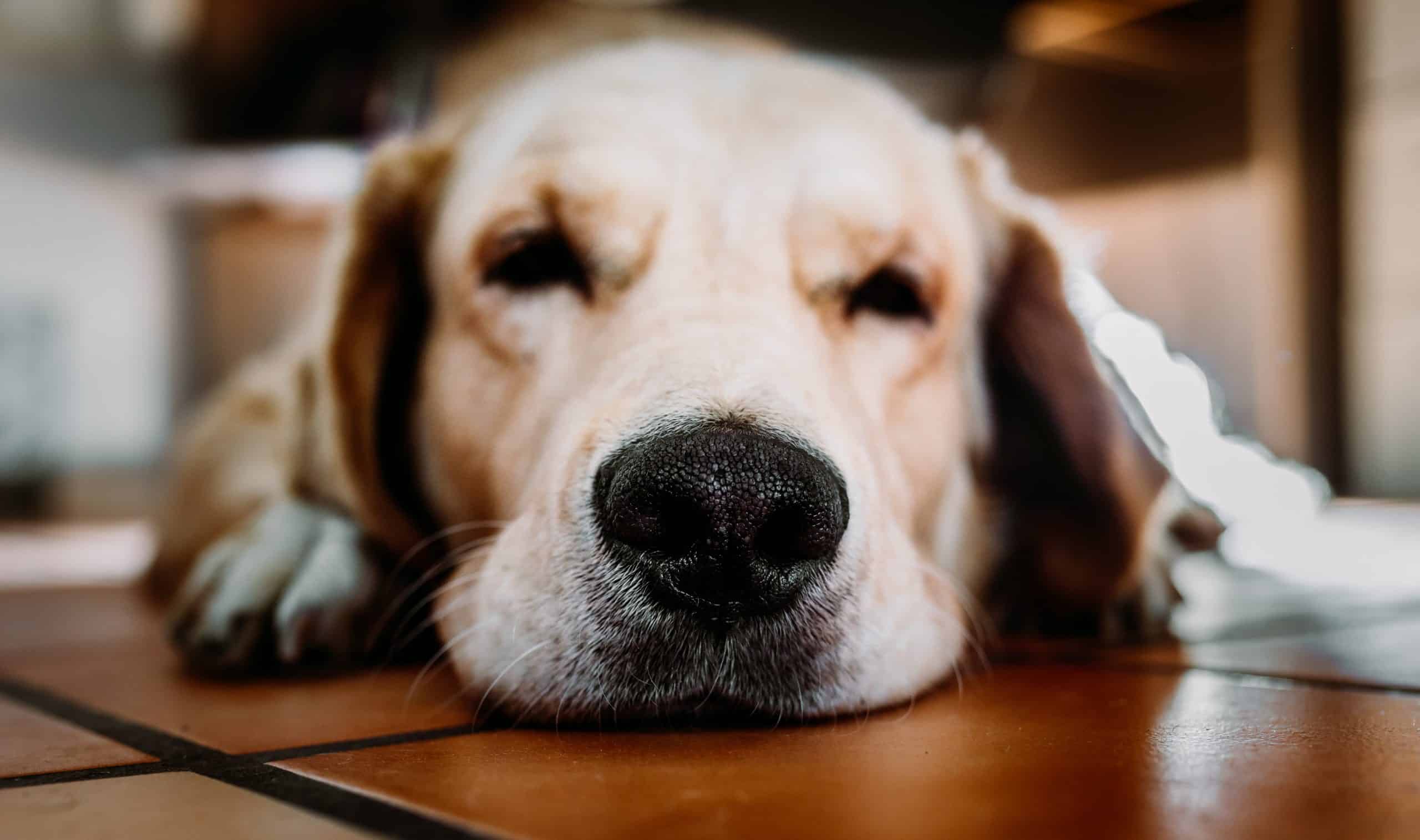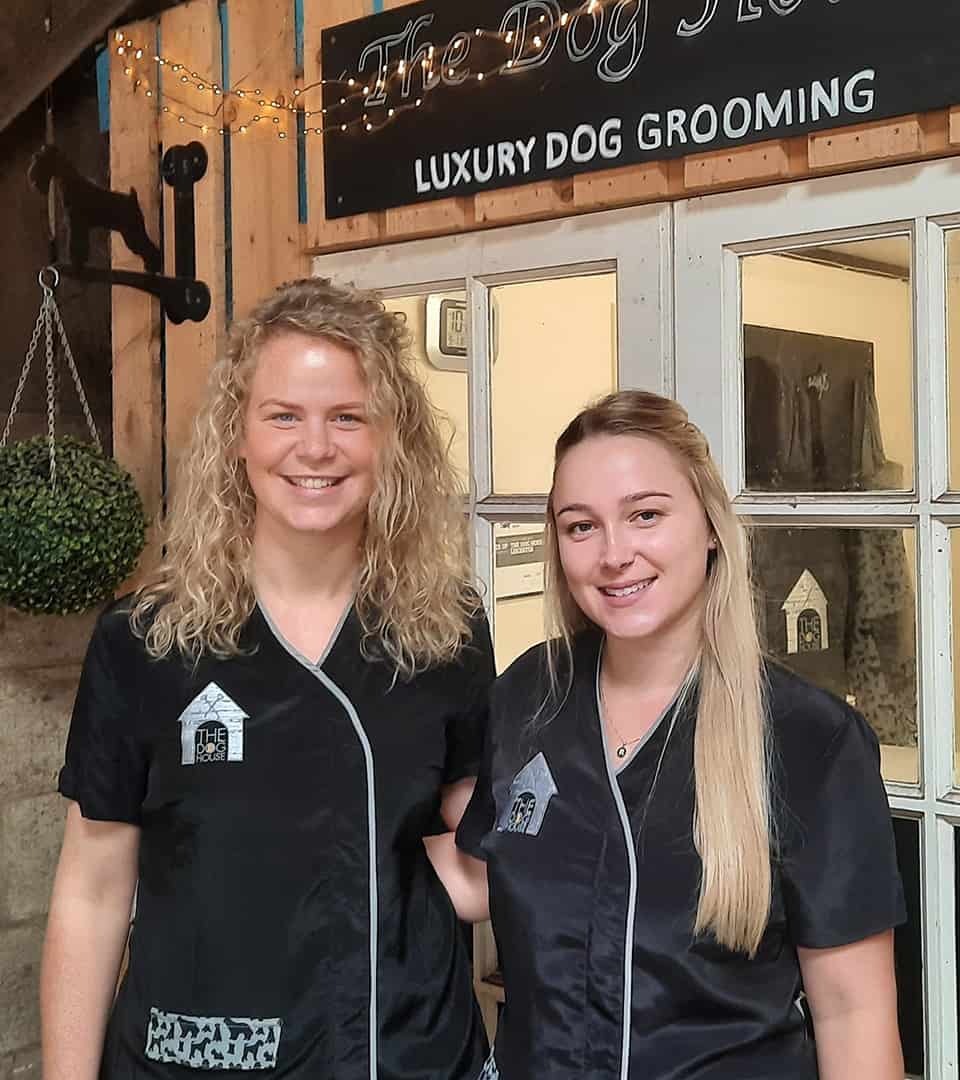With Special Guest Jitka Krizova
As you will have seen from our social media March is Pet Anxiety Month – it’s so important to understand what makes our dogs anxious and the groomers can be quite a bit part of that too. We work really hard with dogs to ensure that they are comfortable and as relaxed as possible in the salon but we’d thought we’d speak to doggy genius Jitka Krizova from Vita Canis. Jitka is not only an exceptional groomer but has also created her own essential oil based products to help calm and relax dogs and she’s kindly offered to answer some of our questions.

How do essential oils work?
Essential oils work in many ways. They can be absorbed through the nose (inhalation) or through the skin (absorption)
When essential oils are inhaled volatile molecules interact with chemical receptors in the nose that transform messages into nerve impulses. These are then directed by the olfactory bulb (in the nose) to various areas of the brain and influencing the limbic system (the part of the brain which deals with emotions and memory).
After inhaling calming essential oils the behavioural changes can occur in seconds, as electrical nerve impulses travel much faster than the circulatory system.
How do you know if an essential oil is safe to use on my dog?
A lot of people think natural ingredients are safe ingredients. This couldn’t be further from the truth. Many natural substances are irritating and even highly toxic. Essential oils are highly concentrated substances and have the potential to cause harm. The rule “less is more” should be applied, especially when working with dogs/animals.
There are also essential oils that are not recommended for use with animals, as they are harsh, irritating, sensitizing and even toxic. For example: Anise, Birch, Camphor, Cassia, Clove leaf and bud, Garlic, Oregano, Pennyroyal, Red and White Thyme, Tansy, Wormwood.
A special mention must be made to Tea Tree Melaleuca alternifolia essential oil. Tea Tree essential oil has strong antibacterial, antifungal, antiviral insect repelling properties. There were reported cases when the oil was applied dermally to dogs and cats. And in most cases, the oil was used in inappropriately, undiluted, and in high doses. Instead of Tea Tree oil we can use the more gentle yet powerful relative , the Niaouli essential oil

I have a dog and a cat in my household – which essential oils can I use for both?
Cats and essential oils can be a potentially dangerous combination, because cats are so much different to dogs when it comes to metabolizing and excretion of certain substances from their bodies. Cats don’t have the necessary enzymes in their liver to break down certain substances and effectively excrete them. This then leads to build up of toxins in their bodies. This toxin build up doesn’t manifest itself immediately in cats, and it can show up in days, weeks, months and even years.
The most gentle essential oils we can use in a diffuser when we have a cat & dog in the same household are: lemon, sweet orange, mandarin, tangerine, bergamot, fir, grapefruit. A cat (and a dog as well) should always have a choice to walk out of the room where the diffuser is used. Always place your diffuser out of reach of your cat, as you don’t want to get any essential oils on her fur.
Can essential oils help as a natural flea and tick repellent?
Yes! Ticks operate mainly by using their sense of smell. Their front pair of legs have what are called Haller’s organs, which detect smell, temperature, movement and carbon dioxide. This is how they know you’re coming. The great discovery is that, for some reason, they are not attracted to the scent of some essential oils. These include for example geranium, grapefruit, cedarwood, rosewood, lemongrass… (never use undiluted essential oils on your dogs coat and skin!!!)
Lemon essential oil is one of the best essential oils for fleas. Its strong smell and powerful active ingredients can repel not only fleas but also flies, midges, mosquitos and ants Also sweet orange and grapefruit smell delightful and repels insects, particularly fleas.

My dog is getting older and is showing signs of dementia which seems to make him/her anxious, is there anything that can help?
From my own experience and from other dog owners as well, the essential oils in Comfort Blend can improve quality of life for dogs with dementia. Bergamot essential oil (which is one of the main oils in Comfort Blend) has various uses when it comes to the treatment of dementia symptoms. It’s also an excellent and popular option for relieving anxiety and nervousness and even mild bouts of depression.
Ylang Ylang essential oil is another great oil when it comes to calming the mind and combatting stress, anxiety and insomnia.
I’m worried about returning to work and my dog developing separation anxiety, what would you recommend?
Separation anxiety happens when a dog becomes too attached to his/ her owner and becomes anxious when they are apart. Because of the current situation, dogs have grown used to having their owners at home pretty much all the time. For a puppy bought during the lockdown, it is the only situation he or she knows. This puppy (or adopted dog) gets undivided attention and creates a strong bond with his humans and unfortunately, he does not learn how to cope with the possible situation of being alone.
However not every dog will become anxious when left alone. Best thing would be to invest in a monitoring system, so you can see what your dog is doing while you are not with him. Then start acting accordingly: introduce periods apart, feed your pup in a different room so he can’t see you, etc. For more advise seek dog behaviourist or dog trainer advice.
As well as introducing periods apart from a puppy or dog, aromatherapy can help a dog to cope with separation. Comfort Blend was specifically designed with separation anxiety in mind.
Comfort Blend provides natural relief from anxiety because it contains useful oils such as neroli, bergamot, basil, and ylang-ylang. These oils are known to help in many of these cases and can bring dogs peace and help them to relax in periods of stress.

A massive thank to Jitka for answering these questions for us. It’s so important to know the correct way to use essential oils and how they can help your pets!
Jitka is a true font of knowledge and if you’d like to know more you can check her out on her socials below, particularly her YouTube Channel, it’s fantastic!
YouTube: https://www.youtube.com/channel/UCkOxAjnNAnWbzu7dEoVHYUw
Instagram: https://www.instagram.com/vita_canis/





